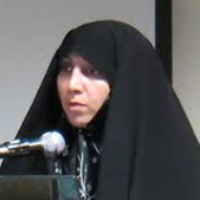Legal Challenges in the Application of Wife’s Agency Clause in Divorce
Author(s):
Article Type:
Research/Original Article (دارای رتبه معتبر)
Abstract:
The main legal basis for granting legal agency in divorce is Article 1119 of the Civil Code. According to the mentioned Article, “the parties to the marriage contract can make any clause that is not contrary to the requirements of the said contract, in addition to the marriage contract or other necessary contracts, such as stipulating that whenever the husband takes another wife or disappears within a certain period or abandons almsgiving or attempts to harm the wife’s corporal integrity or misbehaves in such a way that the life intolerable, the wife should be entrusted with a lawyer and a lawyer who divorces herself after proving the fulfillment of the condition in the court and issuing the final verdict.This type of power of agency is realized if all the contract conditions are fulfilled and the court confirms it. Nowadays, many divorce lawsuits are done by the agency, either by using the marriage contract clauses or by a regulatory agency in notary public offices, usually known as an independent agency. Therefore, the presence of any ambiguity or disagreement in the nature and implementation of the law by lawyers and jurists will directly impact the parties’ rights and how the law is implemented, even making the agency abort. On the one hand, the challenges are related to the nature of the agency and its effects, and on the other hand, filing a lawsuit and leading to a verdict by using an agency in divorce. One of the conceptual challenges is the wife’s right to divorce. Does granting the wife the right to divorce mean granting agency to the wife in divorce?The other challenge is the husband’s motivation to grant the wife agency. Sometimes, in his defense, the husband states that his motivation for granting agency was “encouraging the wife” to “continue life together” and not that the wife proceeds with divorce. In this way, this claim may take on a legal aspect that the courts consider as part of the will of the couple in granting agency. In such a case, i.e., the non-continuity of the shared life, is the legal agency also ruled out?The third challenge is the non-granting of the power of attorney in divorce. Does a divorce lawyer have all the powers related to divorce, such as accepting a dowry? Another challenge is if the lawyer does not respect the couple’s interests in divorce, what measures can the couple take? Apart from formal challenges and the challenge of the lack of urgency in applying the wife’s conditional power of attorney after the fulfillment of the conditions, others, such as the challenge of the validity of the wife’s power of attorney in the case of the husband’s appeal after the divorce, the challenge of the husband’s intervention in the legal process, the request for divorce with proof of hardship and embarrassment and the condition of power of attorney, the challenge of the court in adopting the type of final decision can be mentioned. In this research, the challenges have been examined, and methods and arguments have been made to adjust and combine the substantive and formal rules of agency and proceedings, providing the basis of rationality and purposefulness in these claims. The court’s action in preventing the husband’s involvement in the divorce makes such an agency similar to granting the right of agency to the wife in divorce, which is against the traditional rules of representation and the foundations of our legal system. It seems that the judicial procedure regarding the agency in divorce establishes a different type of agency. The legislator must understand the era’s requirements, make the necessary legislation to maintain harmony, and clarify the person’s duty in referring to the courts in applying for agency in divorce.
Keywords:
Divorce , Agency , Marriage Contract , Family Proceedings , Husband , Wife
Language:
Persian
Published:
journal of Private law studies, Volume:54 Issue: 2, 2024
Pages:
173 to 193
https://magiran.com/p2785238
مقالات دیگری از این نویسنده (گان)
-
A Feasibility Study of Codified Temporary Marriage Based on Indicators of Islamic Lifestyle
*, Atefeh Rahmani, Masumeh Shahriyari
Journal of Research Bulletin for Lifestyle, -
Artificial Fertilization of a Mahram’s Gamete from the perspective of Imami Jurisprudence
*, Leila Bahrami
Jurisprudential and Legal Studies of Woman and Family,



